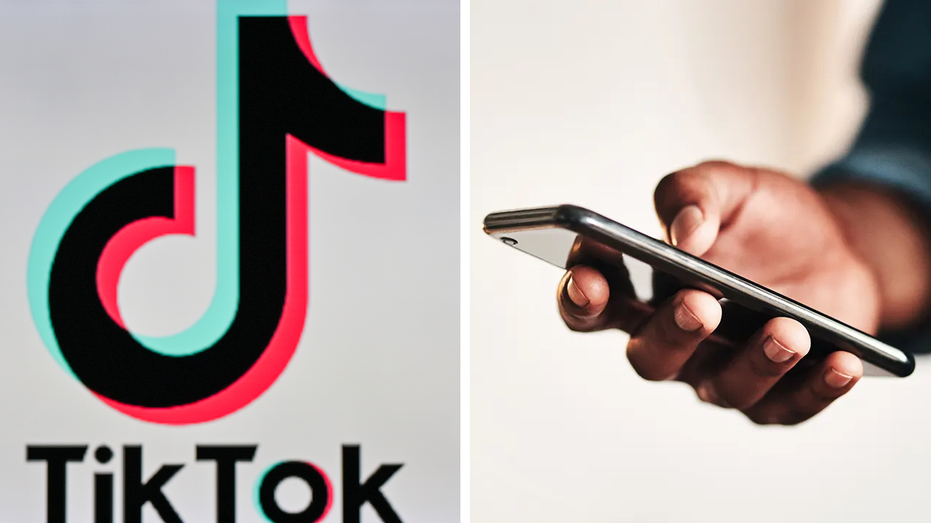
RenMac head of economic research Neil Dutta and JP Morgan Asset Management fixed income portfolio manager Kelsey Berro discuss labor market strength and whether the stock market is influencing the Fed on ‘Making Money.’
The trend of quiet quitting once was very big.
Now, there’s been a shift, as unhappy workers are cutting ties with their employers in vocal, public and attention-getting ways. The trend is called “Quit-Tok.”
Today’s “loud quitting on social media” practice — blending quitting a job plus doing so on the TikTok platform or sharing it there with others — has been growing in popularity among younger members of the workforce.
TIKTOK GEN Z CREATORS REVEAL HOW MUCH THEY’RE EARNING, HOW TO BUDGET IN HOT ‘PAYDAY ROUTINE’ TREND
And though these workers may find the experience satisfying or amusing in the moment, the long-term consequences aren’t all fun and games, according to job experts — as well as some TikTokers themselves who have taken part in the trend and now regret doing so.
A Florida woman named Paige, 24, who works in hospitality, told Fox News Digital she shamed her former employer on TikTok in response to repeated requests to work late at events while other “favored” staff were permitted to leave.

Many unhappy workers today are cutting ties with their employers in vocal and public ways. The trend is called “Quit-Tok.” (Rafael Henrique/SOPA Images/LightRocket/Getty Images/iStock / Getty Images)
“I would see friends of the manager snicker as they left me with a mess to deal with,” the woman said this week (she asked that her last name be omitted for privacy).
“After several holiday parties, I told my boss I wasn’t putting up with this treatment.”
“It seems like a cool way to show that you have power over others, but the next day I felt like it was stupid.”
She quit her job on TikTok — and said she now has some regrets about that.
TOUGHEST JOB INTERVIEW QUESTION OF ALL: ‘WHAT CAN YOU IMPROVE ABOUT YOURSELF?’
“It was not the mature thing to do and my parents were on my back about it. I now have a new job.”
She cautioned others to put their phones down when resigning from a position. “It seems like a cool way to show that you have power over others,” she said — “but the next day I felt like it was stupid.”

While workers may find the experience of “Quit-Tok” satisfying or amusing in the moment, the long-term consequences aren’t all fun and games, according to job experts. And some TikTokers who engaged in the practice now have regrets about doing so. (iStock / iStock)
Two employment experts shared insights into why this trend is exploding and conveyed the pitfalls that can result from ranting about employers on social media — and what to do instead.
What is ‘Quit-Tok’ and why is it trending?
With Quit-Tok, employees take to TikTok or other social media platforms to quit their jobs in loud and public ways.
In addition to quitting a job, there’s often a revenge element attached to the unprofessional practice.
“Similar to a train wreck that you can’t look away from, these videos are so shocking that they’re going viral.”
“This often includes publicly dragging their employers for alleged misconduct in some way,” Neil Costa, the Boston-based founder & CEO of HireClix, said to FOX Business.
“Similar to a train wreck that you can’t look away from, these videos are so shocking that they’re going viral.”
Who’s taking part in this trend?
The trend is embraced mainly among younger, “digitally native demographics” who frequent social media platforms like TikTok, said Costa.
“As short-form video platforms become more popular and the production of these videos becomes second nature, it’s easier and increasingly socially acceptable to air grievances for the world to see,” he said.

“The world of work is much smaller than you’d think,” warned one job expert. “As the way we look at work shifts in terms of blurring lines between personal and professional, it’s more important than ever for employees to think through the potential l (iStock / iStock)
“It doesn’t mean it will stay that way,” he added. “But it has the potential to migrate to other demographics.”
What are the consequences of ‘Quit-Tok’?
People may get some notoriety and go viral for posting their quitting rants and dragging employers through the mud — but unprofessional behavior will come at a cost.
And it could be a large one, say experts.
WORRIED ABOUT LOSING YOUR JOB? FINANCIAL BACKUP PLAN IS ESSENTIAL, SAY EXPERTS
“The world of work is much smaller than you’d think,” warned Costa.
“Employers today are making fewer hires.”
“As the way we look at work shifts, in terms of blurring the lines between personal and professional, it’s more important than ever for employees to think through the potential long-term repercussions of posting on the internet.”
There are more implications for employees to consider.
“There is a reality that employers today are making fewer hires,” said Jessica Roper, director of career services at University of Phoenix in Phoenix.

“Workers are no longer in the driver’s seat, so it is a difficult environment in which to be choosing to burn bridges,” said one expert. (iStock / iStock)
To that point, the University of Phoenix Career Institute® Career Optimism Index found that 62% of employers say their company has experienced slowed or declining hiring over the past year through hiring freezes, layoffs, restructuring, etc.
“This means that the job market is increasingly competitive. Workers are no longer in the driver’s seat, so it is a difficult environment in which to be choosing to burn bridges,” cautioned Roper.
What’s a more appropriate way to resign?
The universally accepted “best practice” for quitting is to give your two weeks’ notice in the form of an email or letter to your direct manager, said Costa with HireClix.
CLICK HERE TO READ MORE ON FOX BUSINESS
“If you have done good work, there is always an opportunity for your colleagues and managers to want to work with you again, opening future opportunities that may not be available to you if you engage in Quit-Tok,” Costa told FOX Business.

A professional resignation is the best course of action for professional references, say experts. It can also leave a door open for future employment opportunities. (iStock / iStock)
“The idea of a ‘boomerang hire’ is unlikely at that point,” he added.
Roper with University of Phoenix agreed that a professional resignation is the best course of action for professional references.
It can also leave a door open for future employment opportunities.
“Providing a formal resignation letter is still a professional courtesy and can ensure a smooth transition for both the worker and their employer.”
“While younger generations may consider notifying their boss of their intent to resign as an old-school workplace formality, providing a formal resignation letter is still a professional courtesy and can ensure a smooth transition for both the worker and their employer,” she said.
CLICK HERE TO SIGN UP FOR OUR LIFESTYLE NEWSLETTER
“A resignation letter’s most important function is to start the official paper trail regarding the circumstances of your departure, but it also gives your boss a chance to come to terms with you leaving and begin looking for a replacement.”

“While younger generations may consider notifying their boss of their intent to resign as an old-school workplace formality, providing a formal resignation letter is still a professional courtesy and can ensure a smooth transition for both the worker (Artur Widak/NurPhoto via Getty Images/iStock / Getty Images)
And, interestingly, the University of Phoenix Career Institute® Career Optimism Index revealed that a third (32%) of workers have “boomeranged” or returned to a job or company that they had previously left.
“So, when you resign,” said Roper, “do so on the best terms possible to keep future opportunities available.”
For more Lifestyle articles, visit www.foxbusiness.com/lifestyle.






